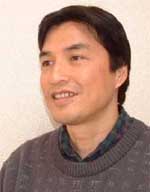International Symposium on Digital Cities (2001.10.18)
Beyond Heterogeneity: Bridging Technologies and Humans
Toru Ishida
Kyoto University
We recently started the research project of "the Universal Design of Digital City," a five year project established in 2000, under the Core Research for Evolutional Science and Technology (CREST) of the Japan Science and Technology Corporation (JST). The objective of this project is "to construct digital cities as an infrastructure used and participated by all people, including the disabled and the aged." The universal design -useable for all people- for digital city is indispensable to create the information space for daily life. In this project, we will develop basic technologies for the universal design, subject to 'sending information,' 'receiving information,' and 'participation.'
This talk introduces various experiments including security, learning about the natural environment by experience, and crisis management, based on the future technologies including 3D, animation, agents, distributed vision and mobile computing.
 Toru Ishida received the B.E., M.Eng. and D.Eng. from Kyoto University, Kyoto, Japan, in 1976, 1978 and 1989, respectively. He is currently a professor of Department of Social Informatics, Kyoto University, Kyoto, Japan. From 1978 to 1993, he was a research scientist of NTT Laboratories. He was a visiting research scientist at Columbia University, a Guest Professor of Technische Universitaet Muenchen and an Invited Professor of de Paris 6, Pierre et Marie Curie. He has been working on community computing from 1995, and edited two books: community computing: collaboration over global information networks (John Wiley and Sons, 1998), and community computing and support systems (Springer-Verlag, 1998). Pro. Ishida is currently working on digital cities: experiences, technologies and future perspectives (Springer-Verlag, 2000) and initiated Digital City Kyoto with my colleagues.
Toru Ishida received the B.E., M.Eng. and D.Eng. from Kyoto University, Kyoto, Japan, in 1976, 1978 and 1989, respectively. He is currently a professor of Department of Social Informatics, Kyoto University, Kyoto, Japan. From 1978 to 1993, he was a research scientist of NTT Laboratories. He was a visiting research scientist at Columbia University, a Guest Professor of Technische Universitaet Muenchen and an Invited Professor of de Paris 6, Pierre et Marie Curie. He has been working on community computing from 1995, and edited two books: community computing: collaboration over global information networks (John Wiley and Sons, 1998), and community computing and support systems (Springer-Verlag, 1998). Pro. Ishida is currently working on digital cities: experiences, technologies and future perspectives (Springer-Verlag, 2000) and initiated Digital City Kyoto with my colleagues.

[back]